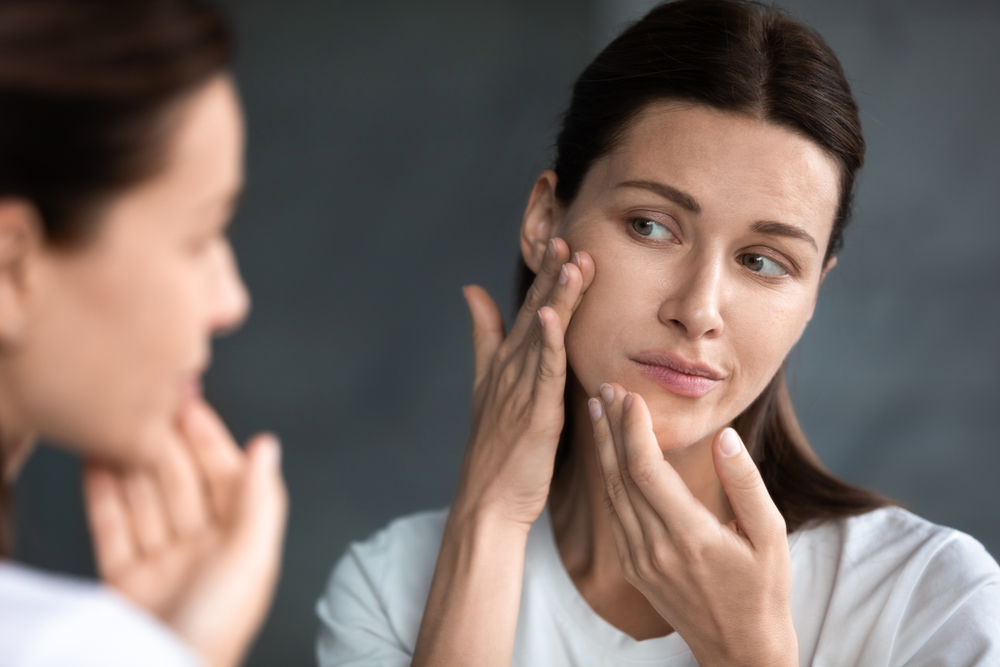When we think about eye health, our minds often jump to vision clarity, corrective lenses, or even cosmetic concerns like wrinkles and drooping eyelids. However, the impact of eye conditions extends far beyond physical appearance or visual acuity—they can significantly affect our mental health as well. Conditions such as ptosis (drooping eyelids) and dry eye syndrome not only influence how we see the world but also how we feel about ourselves and interact with others. Understanding the profound connection between eye health and mental well-being can shed light on why treating these conditions is crucial for more than just cosmetic reasons.
The Psychological Impact of Eye Conditions
Our eyes are central to how we communicate and perceive emotions. When something goes wrong with our eyes, it can affect our self-esteem, social interactions, and overall mental health. Let’s explore a few key conditions and their psychological effects:
- Ptosis (Drooping Eyelids)
- Physical and Emotional Effects: Ptosis occurs when the upper eyelid droops over the eye, which can obstruct vision and create an asymmetrical appearance. For many individuals, especially those in social or professional settings, this can lead to self-consciousness and social anxiety. The constant awareness of a visible “flaw” can make people less likely to engage in face-to-face interactions, fearing judgment or negative attention.
- Fatigue and Depression: Severe ptosis can cause eye strain and fatigue, as the affected individual often has to use the forehead muscles to lift the eyelids, leading to headaches and discomfort. Over time, the physical discomfort combined with the cosmetic concern can contribute to feelings of frustration, low self-esteem, and even depression.
- Research Backing: A study published in the Journal of Plastic, Reconstructive & Aesthetic Surgery found that patients with ptosis often report significant improvements in quality of life and emotional well-being after corrective surgery. These improvements are not just due to the enhanced appearance but also to the alleviation of physical discomfort and the restoration of normal vision.
- Dry Eye Syndrome
- Physical and Emotional Toll: Dry eye syndrome is a condition where the eyes do not produce enough tears or the tears evaporate too quickly, leading to dryness, irritation, and blurred vision. The constant discomfort can make it difficult to focus on tasks, especially those that require prolonged visual concentration, such as reading or working on a computer.
- Impact on Quality of Life: The persistent irritation and vision issues caused by dry eye syndrome can severely impact a person’s quality of life. Individuals with dry eyes often report feeling irritable, frustrated, and less able to enjoy activities that they once found pleasurable. The discomfort can also lead to social withdrawal, as people may avoid situations where their symptoms might flare up.
- Mental Health Correlation: Research published in the American Journal of Ophthalmology highlights the link between dry eye syndrome and depression. The study found that individuals with chronic dry eyes are more likely to experience symptoms of depression, likely due to the ongoing discomfort and its interference with daily life.
Patient Stories: The Human Side of Eye Conditions
Beyond the research, the real-life experiences of patients reveal the deep connection between eye health and mental health. Here are a few stories that illustrate the transformative impact of treating eye conditions:
- Sarah’s Struggle with Ptosis: Sarah, a 35-year-old marketing executive, developed ptosis in her early thirties. Over time, she became increasingly self-conscious about her drooping eyelid, avoiding social gatherings and feeling less confident at work. The condition also caused her to develop chronic headaches from straining to keep her eyelid open. After undergoing ptosis correction surgery, Sarah not only regained her confidence but also found relief from her headaches, allowing her to engage more fully in both her personal and professional life.
- Tom’s Battle with Dry Eye: Tom, a software engineer in his late forties, began experiencing dry eye symptoms after years of working long hours in front of a computer. The constant dryness and irritation made it difficult for him to concentrate, leading to decreased productivity and increasing frustration. Tom found himself becoming more withdrawn and irritable, impacting his relationships at home and work. After seeking treatment for his dry eyes, including prescription eye drops and lifestyle changes, Tom’s symptoms improved, along with his mood and overall outlook on life.
Why Treating Eye Conditions Is Essential for Mental Well-Being
These stories and studies underscore a vital truth: treating eye conditions is about more than just enhancing appearance or improving vision—it’s about restoring quality of life. Here’s why addressing eye health issues is essential for mental well-being:
- Improved Self-Esteem and Confidence: Correcting visible eye conditions like ptosis or under-eye bags can significantly boost self-esteem. When people feel better about their appearance, they are more likely to engage in social activities, pursue opportunities, and enjoy life to the fullest.
- Relief from Physical Discomfort: Many eye conditions cause ongoing discomfort, such as headaches, eye strain, or irritation. Treating these conditions can alleviate physical symptoms, which in turn reduces the emotional burden they carry, leading to a more positive and relaxed state of mind.
- Enhanced Social Interactions: The eyes play a crucial role in non-verbal communication. When eye conditions make people feel self-conscious or uncomfortable, they may avoid social interactions, leading to feelings of isolation. By addressing these issues, individuals can reconnect with others more easily and experience more fulfilling relationships.
- Prevention of Long-Term Mental Health Issues: Chronic eye conditions that are left untreated can lead to long-term mental health issues such as anxiety and depression. Early intervention not only improves eye health but also protects against the potential psychological consequences of living with these conditions.
The connection between eye health and mental health is profound, underscoring the importance of treating eye conditions for reasons that extend beyond the cosmetic. Whether it’s ptosis, dry eye syndrome, or another issue, addressing these conditions can lead to significant improvements in both physical comfort and emotional well-being. For those struggling with the impact of an eye condition, seeking treatment isn’t just about looking better—it’s about feeling better, too. By restoring both eye function and appearance, treatments offered by specialists like Dr. Davis can help patients regain their confidence, improve their quality of life, and enjoy a brighter, more positive outlook.








